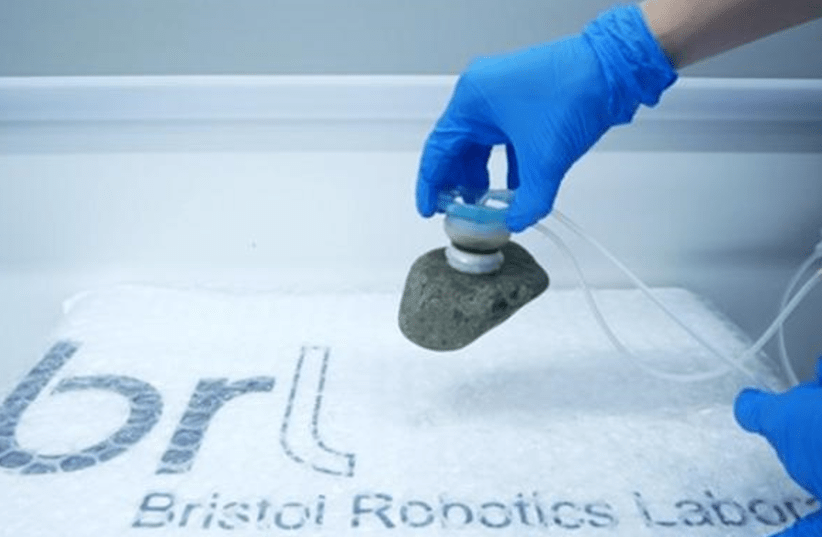What robot makers can learn from an octopus
Researchers show how they were able to create a multi-layer soft structure and an artificial fluidic system to mimic the musculature and mucus structures of biological suckers.
Octopuses seem to be all arms and not have much of a brain, but in fact, these creatures have nine “brains” – one central brain in the head that is used for overall control – and at the base of each arm – a group of nerve cells acting as smaller brains that can control each arm independently.
But now, scientists at the University in Bristol in the UK have discovered even more – that the octopus’s suction cups that can grasp rough, curved and heavy stone have superb adaptive suction abilities enabling them to anchor to rock can be adapted to improve the grabbing power of robots.
In their findings, just published in the journal PNAS under the title “Bioinspired multiscale adaptive suction on complex dry surfaces enhanced by regulated water secretion,” the researchers show how they were able to create a multi-layer soft structure and an artificial fluidic system to mimic the musculature and mucus structures of biological suckers.
The findings have great potential for industrial applications, such as providing a next-generation robotic gripper for grasping a variety of irregular objects, noted the scientists, who now plan to build a more intelligent suction cup, by embedding sensors into the suction cup to regulate suction cup’s behavior.
Soft-body organisms and adaptive suction
Suction is a highly evolved biological adhesion strategy for soft-body organisms to achieve strong grasping on various objects. Biological suckers can adaptively attach to dry complex surfaces such as rocks and shells, which are extremely challenging for current artificial suction cups. Although the adaptive suction of biological suckers is believed to be the result of their soft body’s mechanical deformation, some studies imply that in-sucker mucus secretion may be another critical factor in helping attach to complex surfaces, thanks to its high viscosity.
Lead author Tianqi Yue, a research associate at the university’s School of Engineering Mathematics and Technology, explained: “The most important development is that we successfully demonstrated the effectiveness of the combination of mechanical conformation – the use of soft materials to conform to surface shape, and liquid seal –the spread of water onto the contacting surface for improving the suction adaptability on complex surfaces. This may also be the secret behind biological organisms’ ability to achieve adaptive suction.”
Their multi-scale suction mechanism is an organic combination of mechanical conformation and regulated water seal. Multi-layer soft materials first generate a rough mechanical conformation to the substrate, reducing leaking apertures to just micrometers. The remaining micron-sized apertures are then sealed by regulated water secretion from an artificial fluidic system based on the physical model, thereby the suction cup achieves long suction longevity on diverse surfaces but with minimal overflow.
“We believe the presented multi-scale adaptive suction mechanism is a powerful new adaptive suction strategy which may be instrumental in the development of versatile soft adhesion,” Tianqi added: “Current industrial solutions use always-on air pumps to actively generate the suction. However, these are noisy and waste energy. With no need for a pump, it is well known that many natural organisms with suckers, including octopuses, some fishes such as suckerfish and remoras, leeches, gastropods, and echinoderms, can maintain their superb adaptive suction on complex surfaces by exploiting their soft body structures.”
THIS PAGE WAS POSTED BY SPUTNIK ONE OF THE SPUTNIKS ORBIT BLOG HTTPS://DISQUS.COM/HOME/FORUM/THESPUTNIKSORBIT-BLOGSPOT-COM/




No comments:
Post a Comment